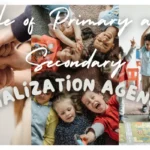If you want to gain an in-depth understanding of this topic, the multiple-choice questions on CDP growth and development MCQ are here to help you. These questions will enhance your knowledge and help you choose the correct answers from the given options. However, I strongly recommend you to go through “Essential CDP Growth and Development B.Ed. Notes for KVS/NVS/DSSSB/EMRS” before attempting these MCQs.
These two terms (Growth & Development) often go hand in hand, but they’re not quite the same. Moreover, this term is equally important in Biology, Zoology, and CDP i.e. Child Development & Pedagogy. So, be conscious – as we are going to cover these MCQs based on CDP. In future, we will be bringing MCQs based on the previous year’s questions. So stay tuned…

“Believe in yourself and all that you are. There is something inside you that is greater than any obstacle.”
Before moving forward, just keep us motivated through your comments and request you to subscribe to our Facebook, X (formerly Twitter), or Telegram channel for all our latest updates.
With excitement, let’s dive into these questions and enhance our understanding.
CDP Growth and Development MCQ for Aspirants
(1) Assertion (A): Growth is a quantitative process that can be measured and is limited to a specific period, ending at maturity.
Reason (R): Development is a continuous process that includes various domains such as physical, cognitive, social, emotional, and moral aspects, and continues throughout an individual’s life.
Options: CDP Growth and Development MCQ
- Both A and R are true, and R is the correct explanation of A.
- Both A and R are true, but R is not the correct explanation of A.
- A is true, but R is false.
- A is false, but R is true.
- Both A and R are false.
Answer: CDP Growth and Development MCQ
(1) Both A and R are true, and R is the correct explanation of A.
(2) According to the Growth and Development, which of the following statements correctly differentiates between Growth and Development?
Options: CDP Growth and Development MCQ
- Growth involves structural changes; Development involves functional changes.
- Growth is quantitative and limited to a period; Development is both quantitative and qualitative and continuous.
- Growth is a progressive series of changes; Development is limited to measurable units.
- Growth continues throughout life; Development stops at maturity.
Answer: CDP Growth and Development MCQ
(2) Growth is quantitative and limited to a period; Development is both quantitative and qualitative and continuous.
(3) Which of the following component is correct regarding Growth?
Options: CDP Growth and Development MCQ
- Growth is primarily determined by environmental factors.
- Physical growth is minimal during adolescence.
- Assimilation is a component of growth.
- Cell division occurs only during adulthood.
Answer: CDP Growth and Development MCQ
(3) Assimilation is a component of growth.
(4) According to the characteristics of development, which of the following is NOT true about development?
Options: CDP Growth and Development MCQ
- Development implies overall changes in shape, form, or structure resulting in improved functioning.
- Development proceeds from general to specific and is based on mass differentiation and integration.
- Development is solely influenced by growth and cannot occur without an increase in height, weight, or size.
- Development includes growth and covers all changes in the organism, encompassing physical, social, emotional, and intellectual aspects.
Answer: CDP Growth and Development MCQ
(3) Development is solely influenced by growth and cannot occur without an increase in height, weight, or size.
(5) According to Child Development & Pedagogy the concept of growth and development, which of the following is NOT a principle of development?
Options: CDP Growth and Development MCQ
- Development follows a cephalocaudal and proximodistal trend.
- Development is a continuous process without any distinct stages.
- Development involves both heredity (nature) and environmental (nurture) influences.
- Development encompasses multidimensional aspects including physical, cognitive, social, emotional, and moral development.
Answer: CDP Growth and Development MCQ
(2) Development is a continuous process without any distinct stages.
Don’t forget to check this out: Essential Growth and Development Notes for KVS/NVS/DSSSB/EMRS
(6) Assertion (A): Development proceeds from general to specific responses as individuals grow.
Reason (R): Development is solely determined by the environment and is not influenced by genetic factors.
Options:
- Both A and R are true, and R is the correct explanation of A.
- Both A and R are true, but R is not the correct explanation of A.
- A is true, but R is false.
- A is false, but R is true.
- Both A and R are false.
Answer: CDP Growth and Development MCQ
(3) A is true, but R is false.
(7) Which of the following statements about gender differences during childhood and adolescence is NOT accurate?
Options:
- Girls tend to experience growth spurts earlier than boys.
- Boys catch up in growth during adolescence.
- Girls are often bigger than boys in elementary school.
- Boys experience their growth spurt around the same time as girls.
Answer: CDP Growth and Development MCQ
(4) Boys experience their growth spurt around the same time as girls.
(8) According to the Child Development & Pedagogy regarding Growth and Development, select the correct answers for the following aspects of development:
| Aspect | Options |
|---|---|
| 1.Cognitive Development | A) Intellectual Abilities B) Memory C) Language D) Problem-solving |
| 2. Moral Development | A) Social understanding B) Emotional understanding C) Psychological understanding D) Ethical understanding |
| 3. Emotional Development | A) Emotional Regulation B) Empathy C) Self-concept D) Identity Formation |
| 4. Physical Development | A) Fine Motor Skills B) Gross Motor Skills C) Growth D) Social Understanding |
| 5. Language Development | A) Literacy Skills B) Writing Skills C) Phonetic Skills D) Reading Skills |
Options: CDP Growth and Development MCQ
- 1(A), 2(B), 3(C), 4(D), 5(B)
- 1(B), 2(D), 3(B), 4(B), 5(A)
- 1(C), 2(B), 3(C), 4(D), 5(D)
- 1(A), 2(C), 3(B), 4(D), 5(C)
Answer: CDP Growth and Development MCQ
(2) 1(B), 2(D), 3(B), 4(B), 5(A)
(9) Which aspect of development involves recognizing and responding to the emotions of others?
Options:
- Emotional Regulation
- Empathy
- Social Understanding
- Self-concept
Answer: CDP Growth and Development MCQ
(2) Empathy
(10) Which aspect of development involves understanding and following the unwritten rules of social behavior?
Options:
- Interpersonal Skills
- Emotional Regulation
- Social Understanding
- Self-concept
Answer: CDP Growth and Development MCQ
(3) Social Understanding
Don’t forget to check this out: Mind Matters: MCQ on Mental Health in School
(11) Which of the following statements about Psychosocial Development is NOT true?
Options:
- Identity formation involves recognizing one’s unique traits and values.
- Social roles are static and do not change over time.
- Self-esteem is influenced by interactions with others and personal experiences.
- Understanding social roles includes adapting to expectations within various contexts.
Answer: CDP Growth and Development MCQ
(2) Social roles are static and do not change over time.
(12) Which of the following statements regarding bilingualism in girls and boys is NOT accurate?
Options:
- Girls tend to achieve proficiency in bilingualism earlier than boys.
- Boys are often more motivated to learn a second language due to peer influence.
- Bilingualism has no significant impact on cognitive development in either gender.
- Both genders can exhibit different language preferences based on social contexts.
Answer: CDP Growth and Development MCQ
(3) Bilingualism has no significant impact on cognitive development in either gender.
(13) Which factor significantly impacts fetal development during pregnancy?
Options:
- Nutrition
- Prenatal Environment
- Physical Activity
- Cultural Influences
Answer: CDP Growth and Development MCQ
(1) Nutrition.
(14) How does socioeconomic status impact development?
Options:
- It has no effect
- It affects access to resources and opportunities
- It only impacts physical health
- It is solely determined by education level
Answer: CDP Growth and Development MCQ
(2) It affects access to resources and opportunities
(15) Which factor can negatively impact a child’s development due to exposure to adverse experiences?
Options:
- Nutrition
- Emotional security
- Stress and trauma
- Physical activity
Answer: CDP Growth and Development MCQ
(3) Stress and trauma
Don’t forget to check this out: Multiple Choice Questions on ICT in Education
(16) Assertion (A): Genetic disorders arise due to specific gene mutations inherited from parents.
Reason (R): Conditions like Down syndrome and cystic fibrosis are examples of genetic disorders.
- Both A and R are true, and R is the correct explanation for A.
- Both A and R are true, but R is not the correct explanation for A.
- A is true, but R is false.
- A is false, but R is true.
Answer: CDP Growth and Development MCQ
(1) Both A and R are true, and R is the correct explanation for A.
(17) Assertion (A): The prenatal environment significantly impacts fetal development.
Reason (R): Conditions in the womb include the mother’s health, nutrition, and exposure to harmful substances.
- Both A and R are true, and R is the correct explanation for A.
- Both A and R are true, but R is not the correct explanation for A.
- A is true, but R is false.
- A is false, but R is true.
Answer: CDP Growth and Development MCQ
(1) Both A and R are true, and R is the correct explanation for A.
(18) What role does healthcare play in development?
Options:
- It is not significant
- It promotes healthy development and prevents illnesses
- It only affects mental health
- It is only important during prenatal stages
Answer: CDP Growth and Development MCQ
(2) It promotes healthy development and prevents illnesses
(19) What role does genetic inheritance play in a child’s development?
Options:
A) It determines all aspects of development.
B) It influences potential growth patterns and traits.
C) It has no effect on development.
D) It is more important than environmental factors.
Answer: CDP Growth and Development MCQ
(B) It influences potential growth patterns and traits.
(20) Which of the following statements is/are correct regarding emotional/social development in a child?
- Between ages 2 and 6 months, infants express, feelings such as anger, sadness, surprise, and fear.
- Babies cannot express themselves in any way until the age of 1 year.
- Toddlers usually enter another emotionally rocky time between the ages of 15 to 18 months.
- 1 and 2 only
- 2 and 3 only
- 1 and 3 only
- All of the above
Answer: CDP Growth and Development MCQ
(3) 1 and 3 only
Don’t forget to check this out: 50 Best CBSE Competency Based Questions.
(21) In the context of child cognitive development, which of the following environmental influences is considered the most significant determinant of a child’s learning outcomes and intellectual growth?
Options: CDP Growth and Development MCQ
A) The availability of advanced technology and digital resources
B) The caliber and approach of educational institutions attended
C) The number of siblings in the family unit
D) The overall safety and amenities of the neighborhood
Answer: CDP Growth and Development MCQ
(B) The caliber and approach of educational institutions attended
(22) The concept of ‘sensitive periods’ in child development refers to:
Options: CDP Growth and Development MCQ
- Times when children are particularly responsive to certain types of learning and development
- Periods of physical growth spurts
- Times when children are most likely to fall ill
- Periods of resistance to learning
Answer: CDP Growth and Development MCQ
(1) Times when children are particularly responsive to certain types of learning and development
(23) According to NEP 2020, growth and development during early childhood should be monitored through:
Options: CDP Growth and Development MCQ
- Standardized tests
- Continuous observation and assessment
- Annual examinations
- Parental feedback only
Answer: CDP Growth and Development MCQ
(2) Continuous observation and assessment
(24) NEP 2020 emphasizes holistic development. Which of the following best describes holistic development?
Options: CDP Growth and Development MCQ
- Focusing on academic achievements while ensuring physical well-being
- Balancing physical growth with the development of cognitive skills
- Integrating emotional, social, physical, and cognitive development to foster well-rounded individuals
- Prioritizing skill development and vocational training alongside traditional academics
Answer: CDP Growth and Development MCQ
(3) Integrating emotional, social, physical, and cognitive development to foster well-rounded individuals
(25) According to the Child Development & Pedagogy regarding Growth and Development, select the correct answers for the following aspects of Stages of development:
| Question | Options |
|---|---|
| 1. Which stage of development occurs from conception to birth? | A) Infancy and Toddlerhood B) Prenatal Development C) Early Childhood D) Adolescence |
| 2. During which stage do children typically experience rapid physical growth and motor skills development? | A) Early Childhood B) Adolescence C) Infancy and Toddlerhood D) Middle Childhood |
| 3. What is a key characteristic of adolescence? | A) Logical thinking B) Puberty C) Independence D) Symbolic play |
| 4. Which age range corresponds to early adulthood? | A) 0-2 years B) 18-40 years C) 6-12 years D) 65+ years |
| 5. What happens during middle adulthood? | A) Cognitive decline B) Career peak C) Identity formation D) Rapid physical growth |
- 1(A), 2(B), 3(C), 4(D), 5(B)
- 1(B), 2(D), 3(B), 4(B), 5(A)
- 1(C), 2(B), 3(C), 4(D), 5(D)
- 1(B), 2(C), 3(B), 4(B), 5(B)
Answer: CDP Growth and Development MCQ
(4) 1(B), 2(C), 3(B), 4(B), 5(B)
Don’t forget to check this out: Diving Deep into 35 Best Case Study MCQ Questions.
(26) Select from List I and List II:
| List I | List II |
|---|---|
| 1. Organ formation | (a) 2-6 years |
| 2. Infancy and Toddlerhood stage | (b) Prenatal Development |
| 3. Early Childhood | (c) Middle Childhood |
| 4. Logical thinking and social skills | (d) Rapid growth |
- 1(a), 2(b), 3(c), 4(d)
- 1(a), 2(c), 3(b), 4(d)
- 1(b), 2(d), 3(a), 4(c)
- 1(b), 2(d), 3(c), 4(a)
Answer: CDP Growth and Development MCQ
(3) 1(b), 2(d), 3(a), 4(c)
(27) Select the answer from the following options:
| Question | Options |
|---|---|
| 1. Identity formation primarily occurs during which stage? | a) Early Childhood b) Middle Childhood c) Adolescence d) Early Adulthood |
| 2. Which stage involves the development of intimate relationships and career development? | a) Adolescence b) Early Adulthood c) Middle Adulthood d) Late Adulthood |
| 3. Physical aging and career peak are key characteristics of which stage? | a) Adolescence b) Early Adulthood c) Middle Adulthood d) Late Adulthood |
| 4. Cognitive and physical decline are associated with which stage? | a) Adolescence b) Early Adulthood c) Middle Adulthood d) Late Adulthood |
- 1(a), 2(b), 3(c), 4(d)
- 1(c), 2(b), 3(c), 4(d)
- 1(a), 2(d), 3(c), 4(b)
- 1(c), 2(b), 3(d), 4(a)
Answer: CDP Growth and Development MCQ
(2) 1(C), 2(B), 3(C), 4(D)
(28) Symbolic play is a key characteristic of which developmental stage?
Options: CDP Growth and Development MCQ
- Infancy and Toddlerhood, are characterized by attachment formation and rapid motor skills development
- Early Childhood, known for significant language development and the emergence of symbolic play
- Middle Childhood, is a period marked by the development of logical thinking and academic skills
- Adolescence, characterized by identity formation and abstract thinking
Answer: CDP Growth and Development MCQ
(2) Early Childhood, known for significant language development and the emergence of symbolic play
(29) Which of the following is not one of the reasons why perception is important for the development of a child?
Options: CDP Growth and Development MCQ
- Acquisition of knowledge.
- Memory.
- Hand-eye coordination.
- Rationalization of child’s view.
Answer: CDP Growth and Development MCQ
(4) Rationalization of the child’s view.
(30) During early childhood, children typically ask many “why” and “how” questions. This demonstrates growth in which area?
Options: CDP Growth and Development MCQ
- Fine motor skills
- Gross motor skills
- Vocabulary
- Emotional regulation
Answer: CDP Growth and Development MCQ
(3) Vocabulary
Don’t forget to check this out: MCQ on Role of School Organization and Management
(31) Which of the following is a common physical milestone in early childhood?
Options: CDP Growth and Development MCQ
- Rapid increase in height and weight
- Riding a tricycle
- Rolling over
- Sitting independently
Answer: CDP Growth and Development MCQ
(1) Rapid increase in height and weight
(32) Which milestone is not commonly associated with later childhood?
Options: CDP Growth and Development MCQ
- Developing friendships
- Engaging in pretend play
- Mastering reading and writing
- Strategic thinking
Answer: CDP Growth and Development MCQ
(4) Strategic thinking
(33) Which language milestone involves mastery of language nuances and effective argumentation?
Options: CDP Growth and Development MCQ
- Vocabulary growth
- Storytelling
- Advanced language skills
- Symbolic thinking
Answer: CDP Growth and Development MCQ
(3) Advanced language skills
(34) Which emotional milestone involves developing a stable sense of identity and self-reflection?
Options: CDP Growth and Development MCQ
- Self-concept
- Self-esteem
- Emotional regulation
- Emotion management
Answer: CDP Growth and Development MCQ
(1) Self-concept
(35) The debate between nature and nurture primarily focuses on what aspect of human development?
Options: CDP Growth and Development MCQ
- Intelligence
- Personality
- All of the above
- Physical abilities
Answer: CDP Growth and Development MCQ
(3) All of the above.
Don’t forget to check this out: Educational Philosophy MCQ
(36) Who emphasized the role of genetics and heredity in determining human traits?
Options: CDP Growth and Development MCQ
- John Watson
- Sigmund Freud
- Sir Francis Galton
- B.F. Skinner
Answer: CDP Growth and Development MCQ
(3) Sir Francis Galton
(37) Which psychologist argued that environmental experiences primarily shape development?
Options: CDP Growth and Development MCQ
- Sir Francis Galton
- John Watson
- Erik Erikson
- Albert Bandura
Answer: CDP Growth and Development MCQ
(2) John Watson
(38) Which of the following statements best summarizes the “nature” argument in the nature vs. nurture debate?
Options: CDP Growth and Development MCQ
- Environmental factors solely determine behavior
- Genetics have no significant influence on personality traits
- Genetic predispositions play a crucial role in shaping behavior and traits
- All behaviors are learned through experience
Answer: CDP Growth and Development MCQ
(3) Genetic predispositions play a crucial role in shaping behavior and traits
(39) Which of the following best illustrates the concept of “gene-environment interaction”?
Options: CDP Growth and Development MCQ
- Individuals with similar genetics always exhibit the same behaviors.
- A child’s intelligence is influenced by both genetic factors and their educational environment.
- Genetics determine the likelihood of developing a skill regardless of practice.
- Environmental factors have no impact on inherited traits.
Answer: CDP Growth and Development MCQ
(2) A child’s intelligence is influenced by both genetic factors and their educational environment.
(40) Lev Vygotsky emphasized which aspect of development?
Options: CDP Growth and Development MCQ
- Fixed stages
- Continuous growth through social interaction
- Genetic influences
- Behavioral conditioning
Answer: CDP Growth and Development MCQ
(2) Continuous growth through social interaction
Don’t forget to check this out: Super 30 MCQ on Experiential Learning.
(41) What is a key difference between Piaget and Vygotsky’s theories?
Options: CDP Growth and Development MCQ
- Piaget focused on social interactions; Vygotsky focused on stages.
- Piaget proposed distinct stages; Vygotsky believed in continuous development.
- Vygotsky emphasized cognitive development; Piaget emphasized social aspects.
- Both agreed on the same developmental stages.
Answer: CDP Growth and Development MCQ
(2) Piaget proposed distinct stages; Vygotsky believed in continuous development.
(42) Which of the following best represents Bandura’s view on development?
Options: CDP Growth and Development MCQ
- Development is fixed after childhood.
- Personality is solely determined by genetics.
- Later experiences significantly influence growth and adaptation.
- Early experiences have no lasting impact.
Answer: CDP Growth and Development MCQ
(3) Later experiences significantly influence growth and adaptation.
(43) What aspect of development does Bandura emphasize that contrasts with Freud’s focus?
Options: CDP Growth and Development MCQ
- The importance of genetics
- The fixed nature of personality traits
- The insignificance of early experiences
- The role of social influences and experiences throughout life.
Answer: CDP Growth and Development MCQ
(4) The role of social influences and experiences throughout life.
(44) Which of the following is a primary domain of child development?
Options: CDP Growth and Development MCQ
- Emotional development
- Political development
- Economic development
- Technological development
Answer: CDP Growth and Development MCQ
(1) Emotional development
(45) At what age do most children begin to develop a sense of self and identity?
Options: CDP Growth and Development MCQ
- 0-1 years
- 2-3 years
- 4-5 years
- 6-7 years
Answer: CDP Growth and Development MCQ
(2) 2-3 years
Don’t forget to check this out: Best 30 NCF 2023 MCQ Questions for Aspirants.
(46) In the context of attachment theory, what is the term used for a child’s distress when a caregiver leaves?
Options: CDP Growth and Development MCQ
- Secure attachment
- Separation anxiety
- Insecure attachment
- Attachment avoidance
Answer: CDP Growth and Development MCQ
(2) Separation anxiety
(47) Which of the following best describes the concept of “executive function” in child development?
Options: CDP Growth and Development MCQ
- Ability to perform basic motor skills
- Cognitive processes that regulate thought and action
- Emotional responses to social situations
- Basic learning and memory capabilities
Answer: CDP Growth and Development MCQ
(2) Cognitive processes that regulate thought and action
(48) What is “theory of mind” in child development?
Options: CDP Growth and Development MCQ
- Understanding the physical world
- Awareness of one’s own thoughts and feelings
- Recognizing that others have different beliefs and desires
- Mastery of social norms
Answer: CDP Growth and Development MCQ
(3) Recognizing that others have different beliefs and desires
(49) Which developmental milestone is typically achieved by age 2?
Options: CDP Growth and Development MCQ
- Speaking in full sentences
- Understanding complex instructions
- Using 50-100 words
- Skipping
Answer: CDP Growth and Development MCQ
(3) Using 50-100 words
(50) Which of the following is not a type of growth?
Options: CDP Growth and Development MCQ
- Physical growth
- Cognitive growth
- Emotional growth
- Social growth
Answer: CDP Growth and Development MCQ
(2) Cognitive growth
Don’t forget to check this out: 50 MCQ on FLN: Adds up to big results.
Please let us know through the comment section if you want any topic to be discussed in this blog. We will try to provide an article on that subject as early as possible.
Please leave your valuable comment in the comment box! Your comments are valuable to us.











